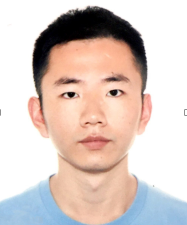
Prof. Yifei Wang
Harbin Institute of Technology, Shenzhen, China
Title: Combined cooling and power, a new application prospect for microfluidic fuel cells
Abstract:
Microfluidic fuel cell employs laminar flows of electrolyte in a micro channel for reactant delivery and ionic conduction purposes, eliminating the necessity of any polymer membrane electrolytes. Benefited from the continuously flowing electrolyte, it can also be utilized for microfluidic cooling at the same time, leading to a low-cost yet highly efficient combined cooling and power system. Our work pioneers in this specific area by studying the detailed coupling effect between a microfluidic fuel cell and a heating chip, revealing the in-depth mechanism of heat & mass transfer within this energy system. Moreover, by introducing ultrahigh flow rates to microfluidic fuel cells for the first time, the cooling capability of such a system is significantly enhanced, while the power generation ability is also optimized via cell structure innovation. Such a combined cooling and power technology is very promising for future microelectronic devices, such as high-performance AI chips.
Keywords: Microfluidic fuel cell, combined cooling and power, coupling effect, heat & mass transfer, ultrahigh flow rate.
Biography:
Dr. Yifei Wang is currently an Associate Professor in School of Mechanical Engineering and automation, Harbin Institute of Technology, Shenzhen. He received his B.Sc. degree from Department of Modern Mechanics, University of Science and Technology of China in 2012, and his Ph.D. degree from Department of Mechanical Engineering, The University of Hong Kong in 2016. Afterwards, he worked as a Postdoc in the same university. His research interest is mainly focused on fuel cells, metal-air batteries and water electrolyzers. Till now, he has published over 80 scientific articles in these areas, with a total citation of 3000+ and a h-index of 31. He has also filed 10+ patents on innovative fuel cell and battery technologies.